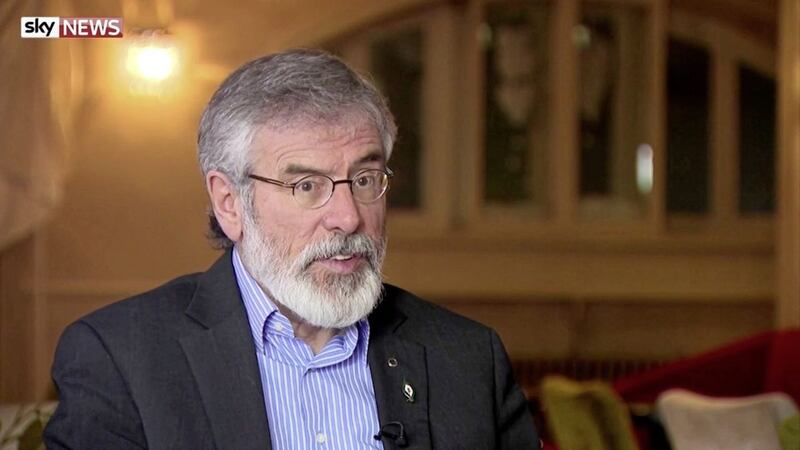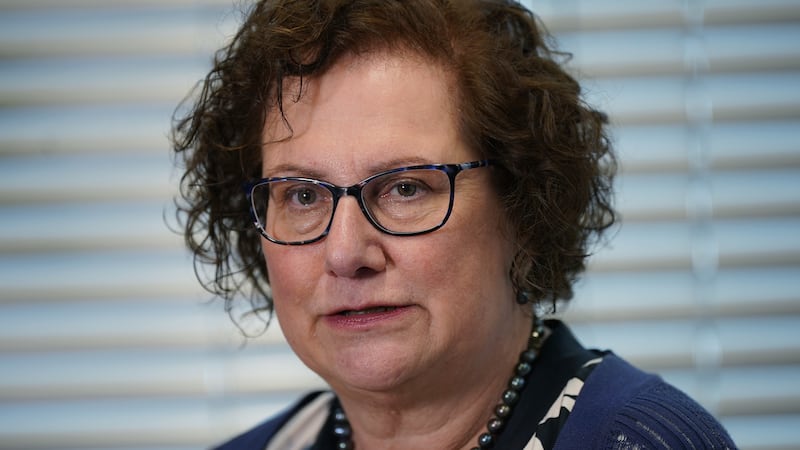GERRY Adams has said an early power-sharing deal at Stormont "wouldn't last" without Martin McGuinness.
The Sinn Féin president said any fresh agreement to restore the executive needs to be "sustainable" in the former deputy first minister's absence.
Talks are due to take place today aimed at restoring the institutions at Stormont.
Secretary of State James Brokenshire has invited the north's parties to continue talks to resolve the political crisis.
Speaking to Sky News, Mr Adams also said he would talk about his long-alleged involvement in the IRA if an independent truth commission was established.
He said he would address his role in the Troubles "if there was a satisfactory arrangement put in place".
In the interview broadcast yesterday, Mr Adams was asked why no deal has been reached at Stormont over relatively minor issues like an Irish language act.
"The issues we have to deal with are not as difficult as the issues which we have dealt with in the past and resolved in the past," the Louth TD said.
"It isn't that we're reluctant to share power, I believe fully and we're wedded to the Good Friday Agreement and the political institutions.
"But as Martin McGuinness said there can be no return to the status quo, so what went wrong was that terms of previous agreements and accords were not implemented and not delivered."
He added: "When you have somebody as big and as strong and formidable as Martin he could carry that to a certain degree for the rest of us.
"Martin's gone so even if we were able to cobble something together tomorrow it wouldn't last so I want it to be sustainable."
Mr Adams also denied that a special status for the north following Brexit would be a united Ireland by the back door.
He said there was little doubt the border would become a "hard economic frontier" following Brexit unless there was special status.
He said the constitutional issue "can only be sorted out if a majority of people in the north and the south vote for it".
On the legacy of the Troubles, he denied his agenda was prosecuting British soldiers.
"Well it isn't about getting British soldiers in the dock, it's about the victims of British soldiers being treated exactly the same as the victims of the IRA or any other combatant force," he said.
"Our position has been for an international independent truth commission that everybody can make use of but we compromised on this issue and yes I believe that victims of the IRA or at least their relatives have the right to truth and I believe that those who are victims of British Army violence or state violence also have the right to the truth and the British government is holding that back."
Discussing his personal role, he added: "I have said – and Martin and I said this together, and we've said it quite a few times – that we would both do our best and we would also encourage other republicans to come forward if there was a satisfactory arrangement put in place and that's my commitment. Martin's not here but that's still my commitment."
Reflecting on the death of Martin McGuinness, Mr Adams said: "I miss him in terms of the daily grind of the work that we're doing, from 1972 this is the first talks process that he and I haven't been together. But I miss him also at a personal level, deeply so. I reconciled myself to that because I know you have to go through a grieving process."







